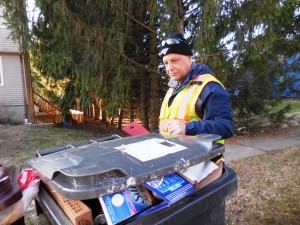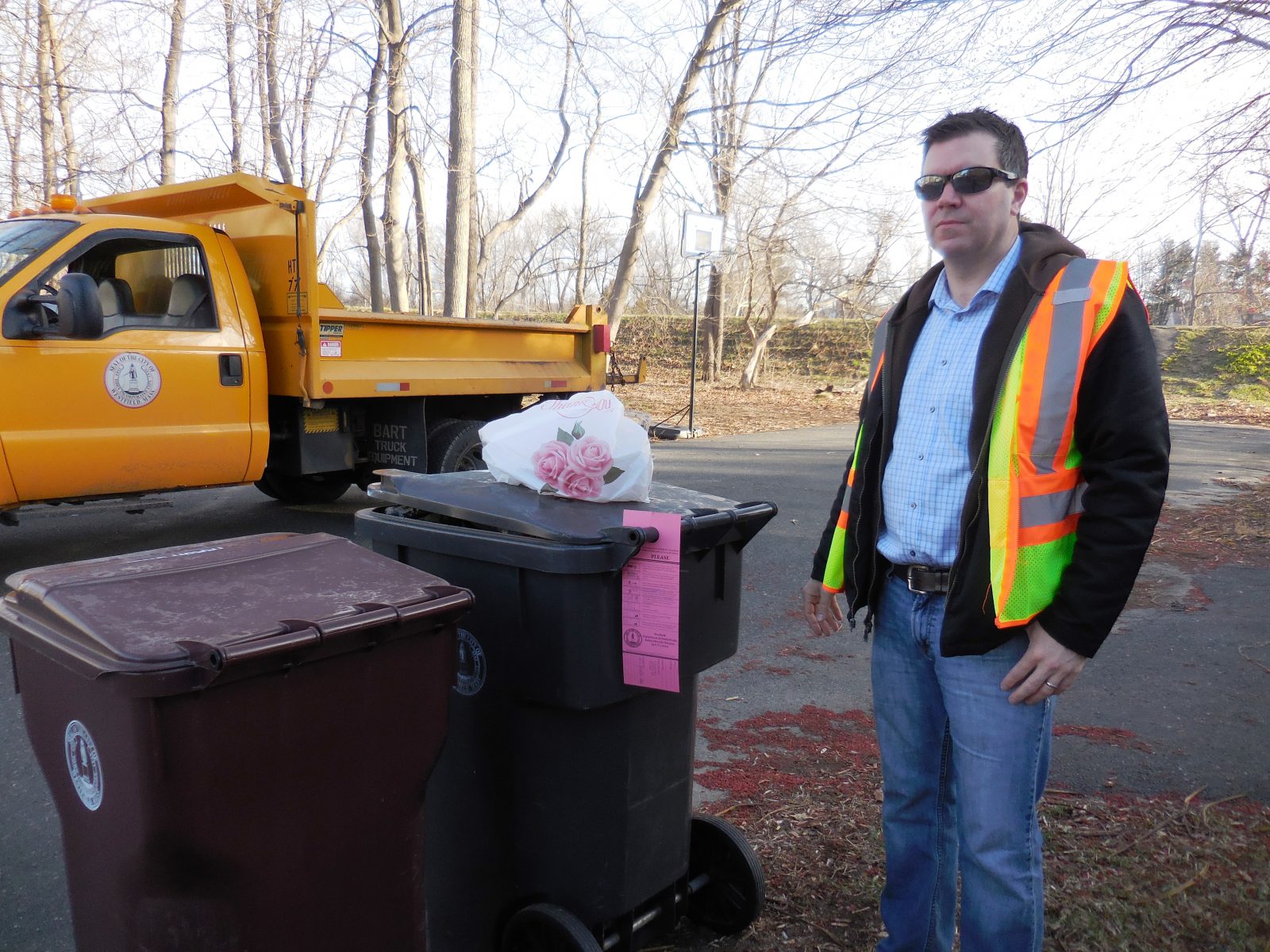
Bruce Langtange of the Westfield DPW inspects recycling barrels for ineligible materials in the Meadow Street neighborhood Wednesday. (Photo by Amy Porter)
WESTFIELD – DPW crews were out in the Meadow Street area on Wednesday morning, inspecting the grey recycling barrels for contaminated waste in advance of a scheduled pick up. Barrels that had unrecycled materials mixed in were tagged with a pink doorknocker, signaling the trucks to pass them by. The next scheduled pick up for the area is April 13.
The tags also explained the reason the barrels were not emptied.
“The goal is, after doing these inspections and educating the people, there’s less contamination,” said Casey Berube, deputy superintendent for the Department of Public Works.
He said inspections are also taking place in the Orange Street area.
Once the DPW trucks pick up the recyclables, they go directly to the Materials Recycling Station at 84 Birnie Avenue in Springfield.
“We’ll get a report, when the load goes over there,” Berube said. “They’ll actually take pictures.”
He said the two neighborhoods had 60 percent contamination at the last pickup on March 16.
Contaminating materials in recyclable bins include plastic bags, styrofoam, building materials, insulation, food waste, wood, rugs, blankets, dirt and electronics, among others. A complete list is available at www.springfieldmrf.org.
Plastic bags are especially troublesome.
“The plastic bags get caught in the gears of the processing facility, and can shut the whole place down,” Berube said.
A high level of contamination can lead to fines for the city. Berube said the bigger fear is if they were to say we’re not taking your loads any more.
“What would we do then?” Berube asked.
Single-stream recycling began in Westfield in January of 2015. Before that, residents had to separate paper and plastic and other containers. The purpose is convenience, to encourage more residents to recycle, resulting in less waste.
“Everyone wants to reduce their waste stream,” Berube said. “Most of the landfills are filling up, so it’s going to be more expensive to deal with trash.”


